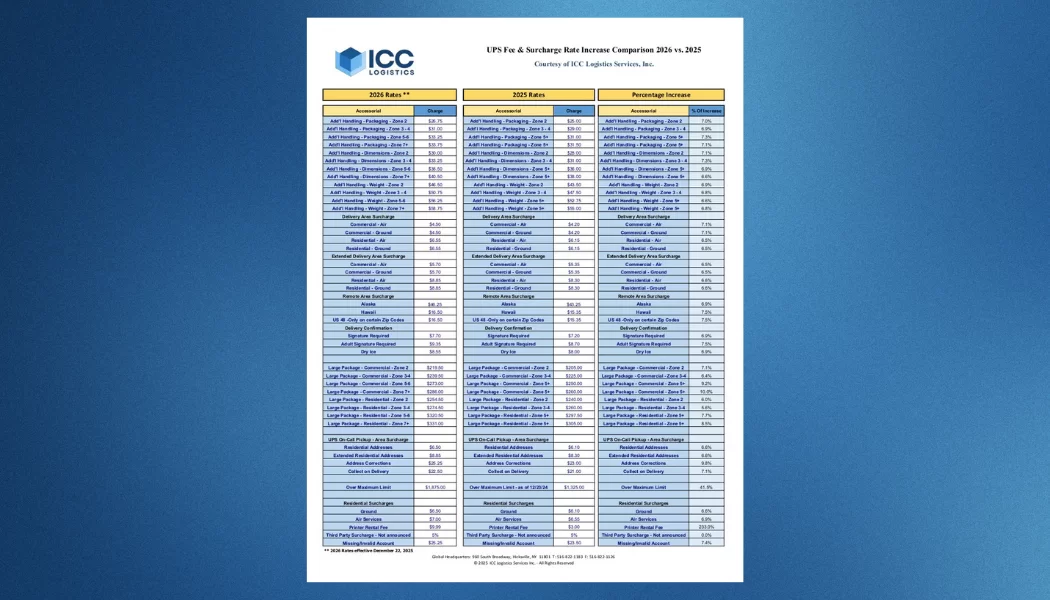Securing a parcel carrier discount feels like a win — until the invoices roll in. What looked like a 40% savings on paper often shrinks once minimum charges, DIM weight rules, and surcharges are factored in. CFOs and logistics leaders discover that the “hard-won discount” doesn’t stick, and costs quietly creep back up.
This is where parcel cost recovery comes in. It’s not just an industry buzzword — it’s the ongoing audit process that protects the savings you fought for, ensures compliance with your carrier contract, and prevents hidden fees from eroding margins.
Why Do Parcel Discounts Disappear Over Time?
Carriers have every incentive to offer impressive-sounding discounts during contract negotiations. But they also know that the true cost of shipping often creeps higher than advertised. Here’s why those discounts don’t last:
- Accessorial charges – Fees like fuel surcharges, Saturday delivery, or rural delivery zones are not always included in your negotiated discount. For high-volume shippers, these can represent a substantial slice of the total cost.
- Dimensional (DIM) weight rules – Carriers apply dimensional pricing formulas that increase billed weight, especially on lighter, bulkier packages. The difference between actual and billable weight can drastically reduce expected savings.
- Minimum charge thresholds – Even with high percentage discounts, if a shipment falls below the carrier’s set minimum charge, the shipper automatically pays more than anticipated.
On paper, it looks like you’re getting, say, a 40% discount from standard rates. But in reality, once all fees and minimums are factored in, the effective discount might only be 15-20%. Over time, these hidden adjustments create what’s called silent margin creep: your shipping spend gradually rises without major changes in your volumes.
How Do Minimum Charges Impact Parcel Discounts?
Minimum charges are one of the most overlooked factors in shipping costs. Let’s say you negotiated an aggressive discount on lightweight ground packages, perhaps lowering them by 50%. If the carrier’s minimum per-shipment charge is higher than your discounted rate, the minimum automatically applies. That means you don’t get your discount at all on that shipment.
This has the greatest impact in areas such as:
- Ground Saver or Economy Services – Carriers enforce minimum charges more frequently on these lower-cost tiers.
- Residential deliveries – The combination of surcharges and minimums often cancels out published discounts.
- Small, light-weight parcels – The very shipments where discounts could help the most are the ones most affected by minimum rules.
What looks like a great negotiated discount often proves meaningless when minimums are consistently applied. This creates a scenario where CFOs and finance teams see little improvement in their shipping budget, even as contracts reflect favorable terms.
What Is a Parcel Cost Recovery Audit?
A parcel cost recovery audit is the process of comparing your invoices to your carrier agreement and service guide, ensuring you’re billed as promised. These audits provide insights into:
- When and how discounts were overridden by minimums or fees.
- Which shipments were billed incorrectly compared to negotiated terms.
- Opportunities to request carrier refunds or adjust terms moving forward.
For example, ICC Logistics’ Parcel Carrier Audit Services are designed to detect these discrepancies. Every late delivery, dimensional misapplication, or overlooked minimum fee is captured so refunds can be recovered. For large shippers, this can mean tens of thousands of dollars annually that would otherwise vanish unnoticed.
Why Is Parcel Shipping Still Expensive After Renegotiation?
One of the most frustrating situations for supply chain leaders comes after a contract renegotiation. Despite putting in the effort to secure improved terms, shipping costs fail to decrease significantly once invoices arrive. Why does this happen?
- Rate erosion – Carrier contracts often carve out exceptions, surcharges, or categories where discounts don’t apply. This quietly offsets headline savings.
- Uncapped surcharges – Fuel, peak season, and delivery area surcharges tend to rise unchecked. Negotiations rarely limit them, so they escalate in a way that can outweigh base rate discounts.
- Carrier-friendly dimensioning practices – DIM weight calculations often tilt in favor of the carrier. This means heavier billing across multiple shipment types.
This is why relying solely on contract negotiations is inadequate. True cost savings come from combining upfront negotiation with continuous invoice auditing and compliance checks.
The Role of ICC Logistics in Protecting Parcel Discounts
With over half a century of experience, ICC Logistics has seen all of the different ways carriers recapture money. Our role is to eliminate those blind spots for shippers through a combination of services, including:
- Contract Negotiation Services – Benchmarking your agreement against market standards to deliver fair and sustainable rates.
- Carrier Contract Compliance Audits – Monitoring invoices to verify whether the applied charges match negotiated rates.
- Download ICC’s Parcel Audit Checklist to help you identify hidden fees, missed refunds, and billing discrepancies in your UPS, FedEx, and DHL invoices.
Our objective isn’t just to challenge carriers. It’s to ensure total transparency for shippers so contracts are more than numbers on paper—they translate into measurable profitability in practice.
Recovering Lost Shipping Discounts
Parcel cost recovery is not only about detecting where discounts disappear. It’s about reclaiming those funds and putting long-term safeguards in place. Businesses that invest in ongoing recovery processes achieve significantly better cost control compared to those relying solely on a renegotiation every few years.
Examples of recovery can include charges refunded from overbilling errors, negotiated adjustments to DIM factors, or even operational refinements on packaging that avoid hidden fees. These improvements often pay for themselves within weeks.
FAQs on Parcel Cost Recovery
Why do parcel discounts disappear over time?
Because carriers offset discounts with fees, DIM rules, and minimum price floors. Without audits, these adjustments slip through unnoticed.
How do minimum charges impact parcel discounts?
They override base discounts by applying a billing floor, ensuring the carrier collects a higher rate regardless of your negotiated percentage.
What is a parcel cost recovery audit?
It’s a systematic review of invoices against contracts and service guides, designed to identify discrepancies and recover lost dollars.
How can I check if my negotiated shipping rates are still applied?
Use ICC’s Parcel Audit Checklist or enroll in a managed audit service to track compliance against your agreements.
Final Thoughts
Negotiating strong parcel discounts is only step one of lowering transportation costs. The real challenge is protecting those discounts over time. Without consistent parcel cost recovery audits, companies leave significant money on the table. Every unmonitored invoice widens the gap between “promised” and “realized” savings.
By working with experts such as ICC Logistics, organizations can not only negotiate more effectively but also hold carriers accountable. The difference isn’t just theoretical; it’s savings that stay in your bank account rather than slipping away in hidden surcharges or carrier-friendly billing practices.
Learn More:
- Parcel Carrier Audit Services
- Contract Negotiation Services
- ICC’s Parcel Audit Checklist
Suggested Reading:
- Stay Ahead of the Latest UPS & FedEx Rate Hikes
- Parcel Auditing vs Freight Auditing: What’s the Difference?
- Understanding Surcharge Recovery and Hidden Fees in Shipping
- Benchmarking For Logistics Contracts: How Data Creates Carrier Negotiation Leverage
- How to Cut Parcel Shipping Costs with a Parcel Audit



 to receive our FREE white papers:
to receive our FREE white papers: